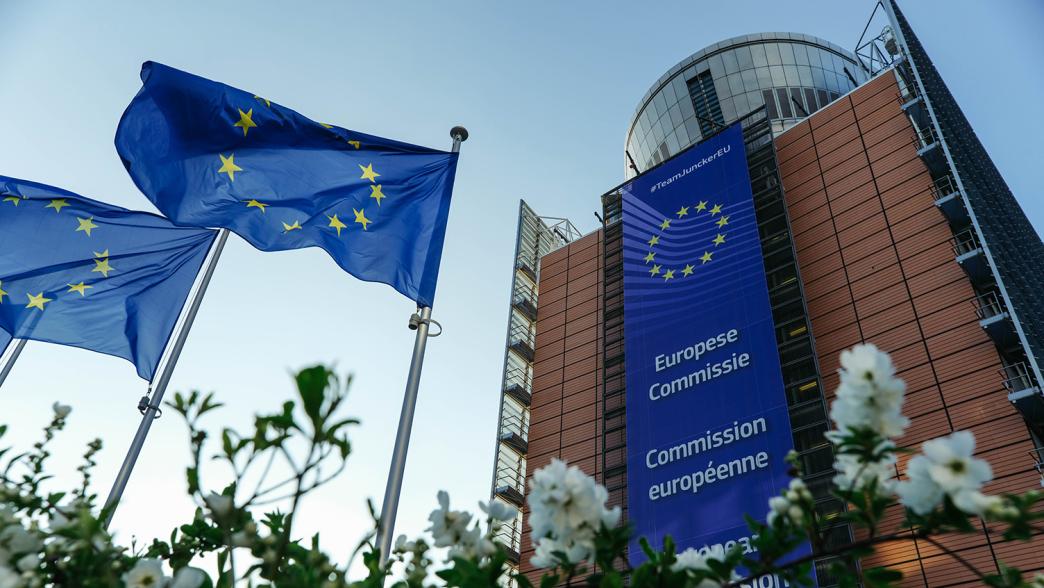The Northern Ireland Protocol Bill leaves EU little room for manoeuvre
The EU27 know the Northern Ireland protocol needs fixing but the UK’s unilateral approach and unrealistic proposals make that difficult to achieve.

The EU27 know the Northern Ireland protocol needs fixing but the UK’s unilateral approach and unrealistic proposals make that difficult to achieve, argues Georgina Wright
The EU is not about to pick a fight with the UK government over its latest Brexit bill which, if passed, will give UK ministers the power to unilaterally change aspects of the Northern Ireland protocol. With war raging in Ukraine, rising energy and living costs and growing inflation, there is no desire to escalate the row especially given the proposed legislation could still change. While the UK's move is seen as a serious breach of trust that will make it even harder for the EU commission to convince member states that a compromise can be found, for now a full-blown trade war is unlikely.
But an already bad relationship has taken yet another blow. The EU27 knew the UK was planning to publish a bill – but it has gone further than many had expected. From the UK perspective, Boris Johnson’s government felt it had no other choice. Negotiations with the EU were not progressing and changes to the protocol are needed to break the political stalemate in Northern Ireland. The EU agrees the protocol needs fixing. However, it sees the UK’s threats – and what it sees as unrealistic proposals that were already floated, and turned down, during the 2019 negotiations – as a confirmation that the UK not only negotiated the protocol in bad faith but that it wants it ripped up all together. Many of the UK proposals were ideas that were floated during the 2019 negotiations, which some EU capitals see as a sign that the UK negotiated in bad faith.
The EU does not want to be the source of escalation
Despite the urgency of the language in the UK’s proposed legislation, the EU is waiting to see how the bill, which could take months to get through the UK parliament, will evolve.
The EU commission also wants to use this time to make sure it has the full backing of the EU27 and the European parliament before deciding next steps. It wants time to discuss all options, including ways to improve the protocol, but also be ready to respond forcefully if necessary.
Above all, the EU does not want to be the one to walk away from the protocol, as it still believes it could be improved if both sides cooperate. The EU commission is expected to use the next days to revisit some of the technical proposals it set out in October 2021. It wants to make sure that a compromise, if there is one, is part of a broader political solution that can withstand the test of time.
There are limits to what the EU can do
So how can the EU respond to the UK's latest move? There are structural and legal limits to what the EU can do, and many in the EU see UK’s demands as extremely political and not possible to resolve through simple technical fixes. They would either require a re-write of the protocol (something the EU27 are vehemently against) or changes to the way the EU works. Take the issue of governance: there is no way that the EU27 would allow someone other than a judge from the European Court of Justice to rule on aspects of the single market. Even if they wanted to, the court would almost immediately issue a verdict to cancel the decision.
The EU believes its October 2021 proposals were both bold and ambitious while being sufficiently vague to allow maximum flexibility in talks. Crucially, it would have allowed the UK-EU joint committee to amend the protocol without re-writing it completely. The commission also froze ongoing infringement proceedings to improve cooperation.
The Northern Ireland Protocol Bill risks long lasting damage to UK–EU relations
For countries like Germany, France and the Scandinavian countries, the UK’s new threats to break international law go against the fundamentals of the EU. Members most exposed to Brexit, like Ireland, Belgium and the Netherlands, are worried about not having sufficient time to prepare for border disruption if the protocol blows up. Farther east, Poland and the Baltic countries worry of deteriorating UK–EU relations at a time when Europe needs to be united.
But it is the timing of the bill that has surprised the EU27 the most. Russia's invasion of Ukraine had brought the EU and the UK closer together. Liz Truss even attended the EU’s foreign affairs council with her US counterpart, Anthony Blinken, in March. The UK’s bilateral relations with countries like France and Germany were also normalising. This bill reverses that progress and many across the EU27, as well as in Washington, worry that Moscow and Beijing will see the UK’s actions as a green light to break international law.
The UK and the EU both agree that the protocol does not work. The EU commission believes a compromise is possible, though the UK's actions makes this less likely. More seriously, there is a real danger that this bill gives the signal that post-Brexit Britain is prepared to breach international treaties when they no longer serve its own interests.
Georgina Wright is Senior Fellow and Director of Institut Montaigne’s Europe Program
- Supporting document
- implementing-brexit-northern-ireland-protocol.pdf (PDF, 1.03 MB)
- Topic
- Brexit
- Keywords
- Northern Ireland protocol Law
- Country (international)
- European Union
- United Kingdom
- Northern Ireland
- Publisher
- Institute for Government